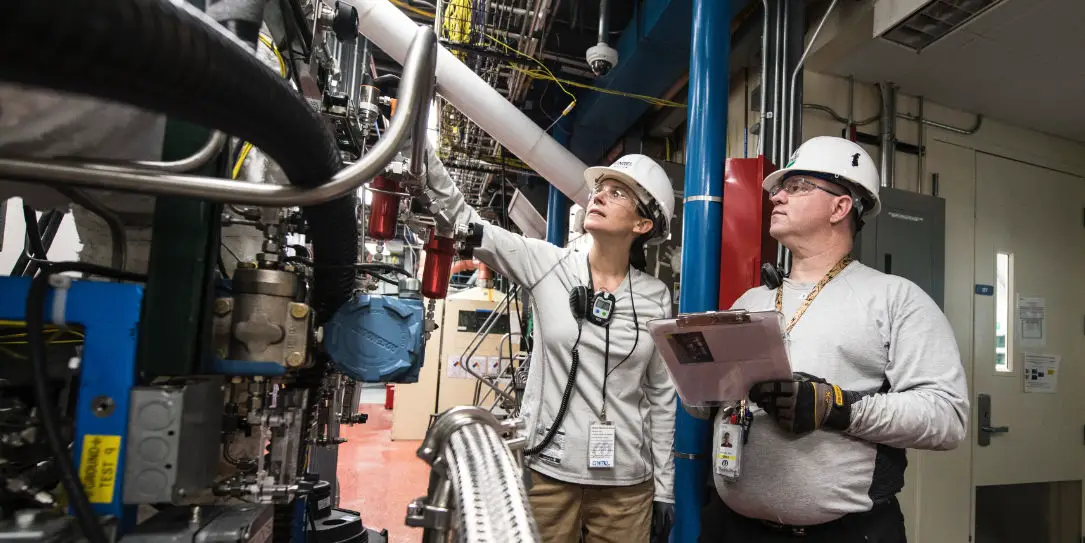The contribution of engineers is manifested in almost all products and services manufactured in many industries. Ideally, engineers can work in any sector that involves innovation and are one of the highly sought professionals across all industries.
That is why, as an engineer, it is not easy to decide on the best industry that will not become redundant or oversaturated over time. With the ever-changing market trends, it is clear that automation and information technology are taking the lead in many industries. This article discusses some of the top sectors for engineers that are in demand in 2020.
Automation and Robotics Industry
The use of robotic systems has become popular across many industries. They are a preference to many because they can perform tasks that humans are unable to complete, with less attention. Through their development, a robotics engineer is involved in designing the robotic systems that help in making work easier, safer, and more efficient, especially in the manufacturing sector. Notably, a robotics engineer spends time in designing plans required to develop robots. They are also responsible for building the necessary processes for the robotic systems to run smoothly.
A robotics engineer also helps design the robot assembling machines. Before the construction of robots, the engineer conducts in-depth research to determine where the robot will be used and how it will accomplish the set goals. In summary, a robotic engineer can work as either an electronic, mechatronic, or mechanical engineer and is involved in designing, constructing, testing, and implementing robotic systems.
Semiconductor Industry
The semiconductor industry has experienced exponential growth over the years. Typically, it is the driving force behind consumer electronics. Semiconductor materials, consisting of silicon, can be found in smartphones, gaming hardware, computer, and medical equipment. Semiconductors can be classified into four groups that include the memory chips that act as a temporal storage house for data that is going in and out of a computer device memory. The second category is the Commodity Integrated Circuit, which is also known as the standard chip that is produced in large batches and used for routine processes.
The microprocessors are the third category, and they serve as the central processing unit that processes tasks. The last group is the Complex SOC or System on a Chip, which creates an integrated circuit chip system with the ability to perform tasks. That said, the work of a semiconductor engineer includes designing and constructing pieces that enhance the functionality of electrical devices. They may use silicon, the main element in semiconductors or other materials such as gases and chemical solvents.

Electrical Engineering Industry
The electrical engineering industry is one of the oldest engineering sectors that are growing with continuous demand. The industry consists of a wide range of fields, including instrumental engineering, electronic engineering, and power engineering. The role of an electrical engineer includes designing and building new electrical systems, testing equipment, and solving electrical problems. Primarily, they learn and apply mathematics and physics of electromagnetism, electronics, and electricity to both small and large scale units to process and transmit power.
They usually work with different sizes of electronic devices, including pocket-size and extensive tools, and they deal with substantial electrical systems like power transmission and motor control. Additionally, they work on various technologies that include telecommunication systems, the creation of household appliances, electrical power stations, satellite communications, and lighting & wiring.
Data Science and Machine Learning
In recent years, software engineering has been one of the engineering fields that have seen rapid growth. Data science and machine learning are an essential part of software engineering, and it involves studying a large amount of data to form meaningful information; the large databases are obtained from various sources like financial entities, e-commerce, and medical sectors. Data science uses both software engineering and statistics to collect, examine, and present information in a clear way to enable the end-user to optimize services. On the other hand, machine learning is a branch of data science that helps predict future trends based on past data algorithms. The field involves making predictions, determining if the predictions are correct, and optimizing the results to facilitate better forecasts in the future.
Civil Engineering Industry
When most people think of civil engineering, they associate it with the world’s most incredible infrastructures. This is actually true. Civil engineering is an incredible industry to work in because it has a wide range of branches. Some of its fields include environmental engineering, road engineering, transportation engineering, and structural engineering. However, besides developing infrastructure, civil engineers have the overall responsibility of maintaining the structures, from roads, bridges, and railways.
It is also their role to adapt waste networks, energy and water supply, and flood prevention. Similarly, civil engineers ensure that the infrastructure is up and running correctly and flex it to address challenges, such as population increase, natural disasters, and climate change. Ideally, there are two categories of civil engineering duties that include consultants and contractors. The consultants’ job entails designing, and they spend most of their time with clients or in the office, while the contractors are based on sites where they oversee physical constructions.
Mining Engineering Industry
Mining engineers or mine experts usually work in mining facilities. Mining can be defined as the first stage of any product’s lifecycle. It is the stage where raw materials of manufactured products are obtained. The role of a mining engineer is to design the open as well as the underground mines. They are in charge of supervising and coordinating all mining activities, including excavation and transportation of minerals to processing plants.
Similarly, they specialize in developing, designing, and testing processes and machines for material extraction. However, their area of expertise depends on the type of ore they are specialized in mining. Various materials such as copper, coal, oil, and gas, require special skills and tools of extraction. This means that it is the responsibility of each mining engineer to develop, design, and implement such requirements to ensure the extraction of quality ores. Most importantly, it is up to the mining engineer to control the impact of their activities on the environment.
What do you think of this article? Are you currently in this field? What are your experiences and thoughts about the future? if you have any input please let us know in the comments below or on Twitter, or Facebook. You can also comment on our MeWe page by joining the MeWe social network.
Last Updated on February 3, 2021.










